
Research shows that organizational diversity leads to growth, innovation, creativity and better financial outcomes. Cultural awareness and a sense of belonging support greater rates of employee retention. “A willingness to pursue the benefits of DEI (diversity, equity, and inclusion) — the full participation and fair treatment of all team members — renders organizational wholes greater than the sum of their parts,“ write the authors of a recent New York Times opinion piece.
DEI makes business sense. One company that has taken these findings to heart is Energetiq Technology, Inc., a Hamamatsu Company that provides ultra-bright light source solutions for semiconductor manufacturers. It also is one of the few SEMI member companies led by a woman — Debbie Gustafson has been Chief Executive Officer of Energetiq since 2016.
I recently spoke with Gustafson and two Energetiq employees – Senior Marketing Manager Mae Steinberg and Senior Director of Sales and Service Megan Dube – about the importance of equity and inclusion at the company. They discussed supporting DEI-focused events, and why creating workplaces that are intentional about fostering diversity and belonging is so critical to the future success of the semiconductor industry.
___________________
Kindling: Why was it important that you and Energetiq sponsor the recent Women in Semiconductors (WiS) reception at ISS 2024?
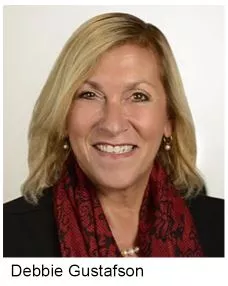 Gustafson: SEMI has been instrumental in pushing for greater diversity, equity, and inclusion through the SEMI Foundation. I was so pleased that Energetiq, along with DSV, were able to sponsor and host the first Women in Semiconductors reception at ISS 2024. It was gratifying to welcome so many attendees, women and men, to this networking event. I have been working in the semiconductor industry for over 25 years and have recognized the need to promote and support women in the industry during my tenure. My personal involvement in SEMI activities goes back many years and includes membership on the SEMI New England Committee beginning in 2006. I’m pleased to serve on the SEMI Foundation Board of Trustees. Sponsoring the WiS reception was a way to show my support for SEMI events and encourage men to attend as allies to women. Every semiconductor organization needs to support events like WiS.
Gustafson: SEMI has been instrumental in pushing for greater diversity, equity, and inclusion through the SEMI Foundation. I was so pleased that Energetiq, along with DSV, were able to sponsor and host the first Women in Semiconductors reception at ISS 2024. It was gratifying to welcome so many attendees, women and men, to this networking event. I have been working in the semiconductor industry for over 25 years and have recognized the need to promote and support women in the industry during my tenure. My personal involvement in SEMI activities goes back many years and includes membership on the SEMI New England Committee beginning in 2006. I’m pleased to serve on the SEMI Foundation Board of Trustees. Sponsoring the WiS reception was a way to show my support for SEMI events and encourage men to attend as allies to women. Every semiconductor organization needs to support events like WiS.
Kindling: Why is addressing equality and the gender gap so necessary?
Gustafson: Anyone who has attended SEMI conferences and other events realizes that attendance by women is limited. When I attended my first ISS eight years ago, I was shocked by how few women were in attendance. It was less than a handful. This year’s attendance by women improved but it was still less than 10% of the total. Since ISS is an executive conference, this isn’t surprising; only 7% of women hold leadership roles in the semiconductor industry. Equality is not a given in people’s minds. The industry and every SEMI member need to support this concept.
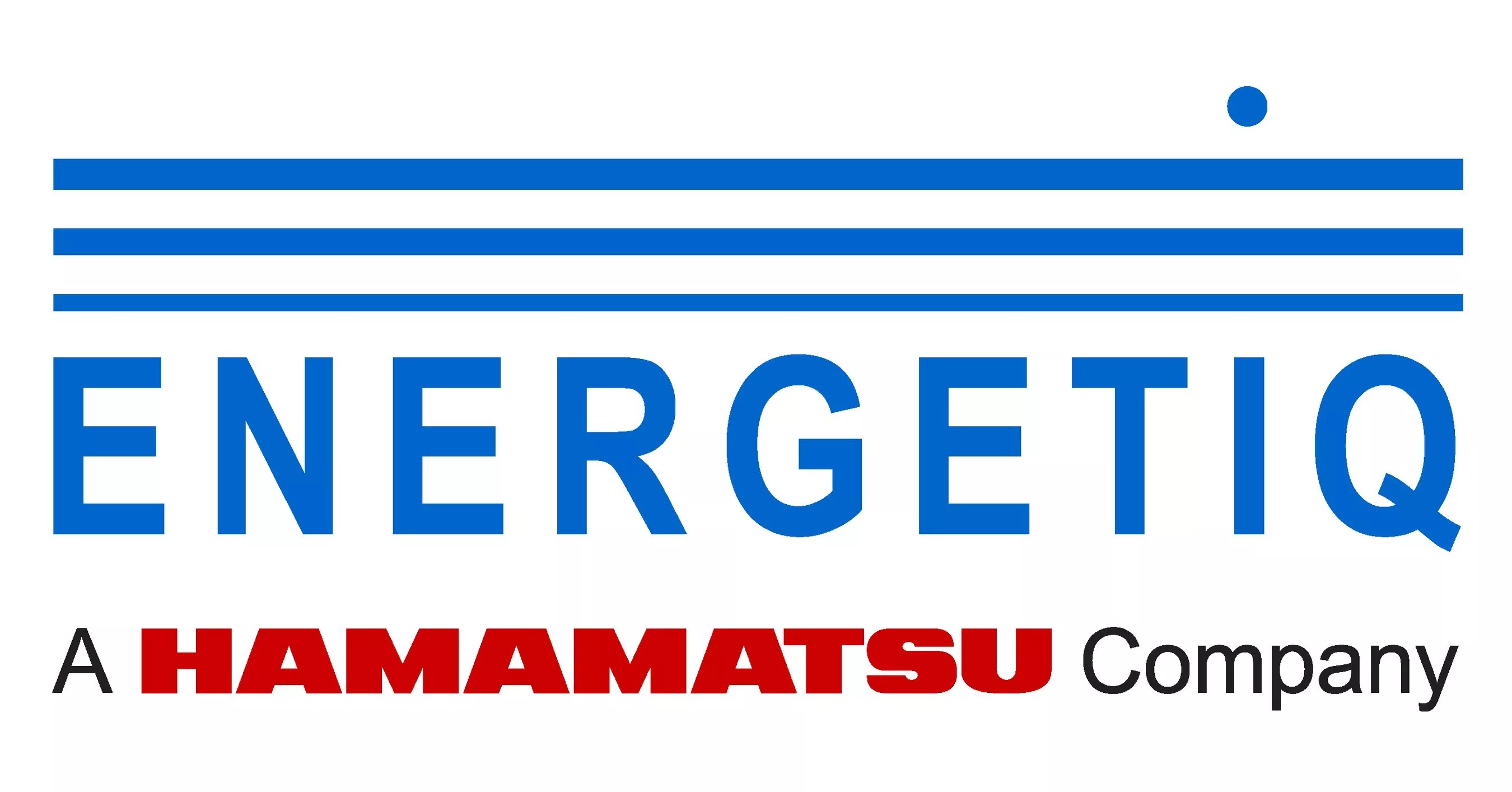 Diversity in organizations leads to growth and innovation. There were many conversations at the WiS reception about how each person can drive change in their organization and in the industry. During the reception, I talked to several young women who are considering joining the industry. They wondered whether they would be treated differently in their career paths because of their gender, and expressed concern about the response they might receive from a future employer about their desire to start a family one day.
Diversity in organizations leads to growth and innovation. There were many conversations at the WiS reception about how each person can drive change in their organization and in the industry. During the reception, I talked to several young women who are considering joining the industry. They wondered whether they would be treated differently in their career paths because of their gender, and expressed concern about the response they might receive from a future employer about their desire to start a family one day.
Kindling: You started your career as a field service engineer. Do you feel that you have an obligation to advocate for women and more events like WiS?
Gustafson: As a female CEO in this industry, I have been able to create a platform for women to feel both responsible and equal in shaping the company, which has led to our organizational growth. Empowering women is crucial to that growth. Allyship is especially important to women, providing opportunities for growth and career advancement. I experienced this in my own career. It’s necessary to increase the number of women who speak at and attend SEMI events, and to work toward gender parity in our industry.
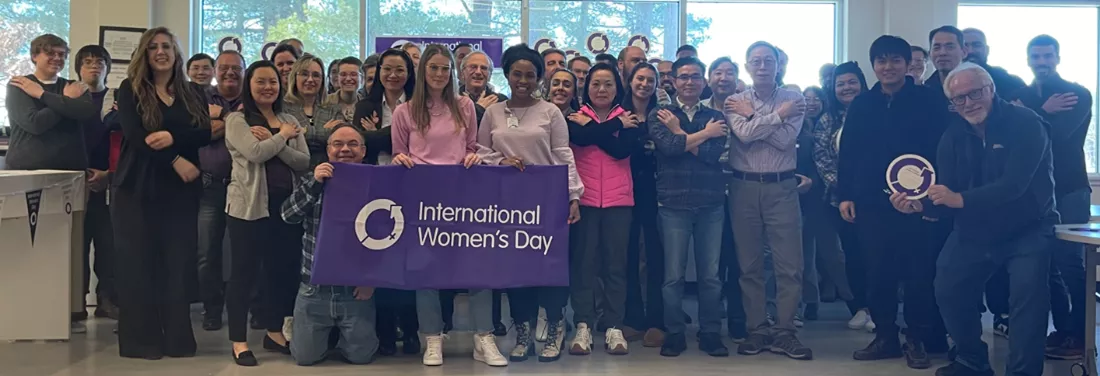
Energetiq Technology employees celebrate International Women’s Day.
___________________
Kindling: How have you leveraged your role as Senior Marketing Manager to address inclusion and equity at Energetiq?
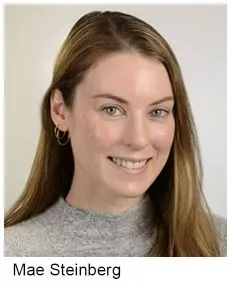 Steinberg: Recently, I paid a month-long visit to our parent company, Hamamatsu Photonics, in Japan. It was more than just a business trip. It was a cultural immersion that reinforced my interest in diversity, equity, and inclusion in the semiconductor industry. My visited coincided with Halloween, so I took a playful stance on representing the need for women in our industry by dressing up as Semiconductor Cleanroom Barbie. It was a whimsical way to highlight our industry's critical role in and spark conversations about an often-overlooked field dominated by men. Mattel, the creator of Barbie, has explored over 250 careers for Barbie since 1959. I think it's high time she ventured into microelectronics! This industry is pivotal to innovation and on its way to achieving a remarkable $1 trillion revenue milestone by 2030.
Steinberg: Recently, I paid a month-long visit to our parent company, Hamamatsu Photonics, in Japan. It was more than just a business trip. It was a cultural immersion that reinforced my interest in diversity, equity, and inclusion in the semiconductor industry. My visited coincided with Halloween, so I took a playful stance on representing the need for women in our industry by dressing up as Semiconductor Cleanroom Barbie. It was a whimsical way to highlight our industry's critical role in and spark conversations about an often-overlooked field dominated by men. Mattel, the creator of Barbie, has explored over 250 careers for Barbie since 1959. I think it's high time she ventured into microelectronics! This industry is pivotal to innovation and on its way to achieving a remarkable $1 trillion revenue milestone by 2030.
Kindling: What insights about the workplace did you gain from your travel to Japan?
Steinberg: The commitment to increasing female participation in our workforce is notable, mirroring the global movement toward gender diversity in tech. At Hamamatsu, witnessing the collective efforts of women and men alike to address gender inequality was motivating. There's a shared vision for a more balanced and inclusive future, making it more than just a workplace initiative. Fostering a diverse and inclusive semiconductor industry globally requires multinational companies to encourage cross-border dialogues on diversity and inclusion. It’s so important to invest in these conversations, to nurture women's careers beyond their immediate roles, and to continuously question existing imbalances. These are key to building a future where diversity is integral to our industry.
Kindling: Despite cultural differences, did you see similarities between Japan and the U.S. workforce?
Steinberg: Globally, women in the semiconductor industry face common challenges such as balancing household responsibilities and careers and overcoming pay disparities. In the U.S., with its diverse cultural landscape, we often see a dilution of focus on gender due to competing social issues. In contrast, I believe Japan's more homogenous culture allows for a concentrated effort on gender inequality, offering lessons on the effectiveness of different strategies in various cultural contexts.
Kindling: Did your experience change your perspective in any way?
Steinberg: The experience was invaluable for my professional growth. Connecting with colleagues in person and gaining an understanding of different aspects of our business broadened my view of the semiconductor industry and Energetiq's role within it. My time in Japan was an enlightening blend of professional development and cultural immersion. It reinforced my belief that embracing diversity is not only a moral imperative but also a vital component of innovation and growth in the semiconductor industry. We need to make diversity an integral part of our industry's DNA.
___________________
Kindling: What has been vital to your success in the semiconductor industry?
 Dube: I’m a mother with two young children with a thriving career in the semiconductor industry, so the support I receive at Energetiq plays a pivotal role in my success. My support system stands on three strong pillars: my spouse and family, my employer, and my friends. The synergy of these elements, along with the additional support from others who enable, uplift, and champion my career, is indispensable.
Dube: I’m a mother with two young children with a thriving career in the semiconductor industry, so the support I receive at Energetiq plays a pivotal role in my success. My support system stands on three strong pillars: my spouse and family, my employer, and my friends. The synergy of these elements, along with the additional support from others who enable, uplift, and champion my career, is indispensable.
Kindling: How do working mothers add value to employers and how has Energetiq supported you?
Dube: From the early stages of family planning to my return to the workforce, my company’s support has been and continues to be paramount. Under the leadership of Debbie Gustafson, Energetiq is a workplace that acknowledges the unique perspectives and crucial skills that mothers bring to the workplace. The multitasking abilities, empathy, and problem-solving skills cultivated through motherhood are invaluable assets in professional settings. Companies that embrace diversity and inclusion, leveraging the strengths of working mothers, create a dynamic and innovative work environment.
In my personal journey, Energetiq provided unwavering support, offering opportunities for growth and expanding my role. This support manifested in various forms, including flexibility of working hours, progressive parental leave policies, and mentorship. My managers trusted me to accomplish the work. Open communication, a shared commitment between myself and the Energetiq, played a pivotal role in my success story.
This alignment between my employer and me during the stage of becoming a parent only strengthened my loyalty and commitment to my employer.
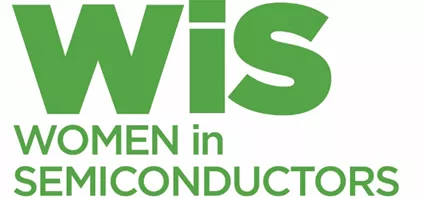
Learn more about fostering workplace inclusion and equity at the next Women in Semiconductors (WiS) on May 16, 2024. The program will continue to unpack what constitutes an inclusive workplace and why fostering greater inclusion leads to greater innovation, sense of belonging and employee success. WiS 2024 registration is open.
About the Interviewees
Debbie Gustafson joined Energetiq in 2005 and became CEO in 2016 after serving as the company’s COO. She works tirelessly to change the face of the technology industry and is committed to building diverse teams, opening doors for other women in tech and mentoring them through their experiences. Debbie has served on the SPIE Equity, Diversity & Inclusion Committee and Executive Advisory Group (EAG) and SEMI North America Advisory Board. She is a member of the SEMI Foundation Board of Trustees.
Mae Steinberg is a Senior Marketing Manager at Energetiq Technology. She is an active member of Energetiq's DEI committee and employee resource groups, collaborates globally with the marketing team at parent company Hamamatsu Photonics, and was honored as a Laser Focus World magazine rising star.
Megan Dube serves as Sr. Director of Sales and Service at Energetiq Technology. She has over a decade of experience working with optomechanical products in the semiconductor supply chain. While working at Energetiq she has seen the company through many transitions including its acquisition by Hamamatsu Photonics and many first-of-its-kind product launches. Throughout her well-rounded career she has held roles in technical and global sales management, product management and customer service.
Margaret Kindling is Senior Program Manager for DEI at the SEMI Foundation. She manages WiS and WFD/DEI programming at SEMICON West.